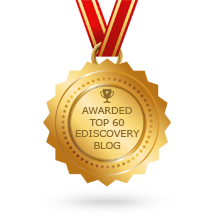The perception that ediscovery software is expensive and only suitable for large matters could not be further from the truth. There are many options available, with some starting at only a few dollars a month. It is just a matter of finding the e-discovery software that best suits your individual requirements.
Small firms with small matters want to know what ediscovery software options are available for them. I touched on this in my last post summarising the ADLS E-Discovery Seminar, but I thought I would expand on this issue due to a number of queries I have come across. Queries of this ilk are not new to me as I do a large majority of my work with smaller and medium size firms with similar concerns. They often do not have the resources to throw at their discovery requirements, and engage someone like myself to help them with their e-discovery requirements.
More firms are becoming aware that there are options available. Often what they are seeking is independent advice to assist them find the right ediscovery software for their requirements and then to facilitate the implementation of the software. It is important to look at all the options to find the right tools to help make e-discovery less burdensome.
I have written in detail around these issues previously, including my posts on –
- Get advice before you buy
- Providing technology options for small matters
- Growing litigation support options in NZ
One common trend that I am seeing with firms I work with and in the market generally, is the shift away from firms investing in in-house software themselves. Some of the e-discovery products available require dedicated resource, even litigation support departments to run effectively. If you have this capability, then these products may be right for you, but as most do not then these products may just add additional burden to your legal team.
“All products can talk to each other”
Firms no longer have to deploy the same piece of software. I have watched over many years in New Zealand and from working overseas where a firm would go and purchase a product, solely because others had the product. This is no longer the case as there are many options available, as all products can talk to each other and all should be able to transfer data easily between products. The accessibility of the various software options has levelled the playing field and removed any disadvantage that some firms may have previously experienced. Greater awareness of the options available certainly helps provide lawyers with the tools to conduct electronic discovery more effectively.
Technology evolves, requirements of firms change, so it is important to have the flexibility to be able to move to software that suits the requirements of a matter. Too often, I see firms try to change their practices and requirements to suit the capabilities of their ediscovery software.
The growth of SaaS options
Many providers offer a SaaS (Software as a Service) and hosted model, essentially it is an ‘On Demand’ service where you only pay for what you need and when you need it. The impact of these SaaS/hosted products, has seen many more options for those conducting electronic discovery.
This is becoming an increasingly popular model for firms that may not have large matters, or the internal resources to support a product. Also when a larger matter arises, they have the option to shift (if necessary) to a product that is capable of handling the increased volumes.
Some of the most common reasons people prefer a SaaS/hosted model include –
- Pay only for what you use
- Disbursements can be billed directly to clients
- No internal infrastructure burdens
- Accessible to anyone with an internet connection, but multiple levels of security
- The flexibility to move to a different product without having made a substantial investment
I am the first to acknowledge the benefits of the more sophisticated technology and the benefits they can bring, but the sophisticated options will not be required on all matters. Most smaller matters probably won’t require the benefits of predictive coding, email threading or near duplicate analysis, but they will benefit from having a platform that can assist them manage their documents efficiently and cost effectively. On the smaller matters, some of the basic features may be all that is required.
There is no one right approach, but it is important to get independent advice to help you make an informed decision on the right software for you.

